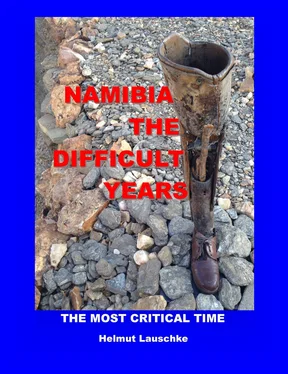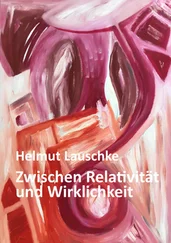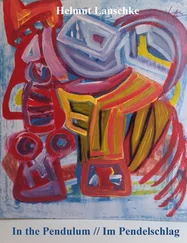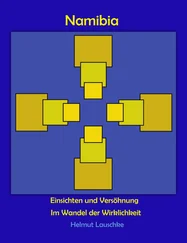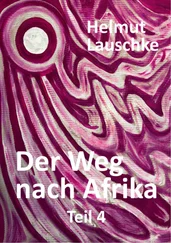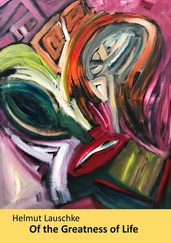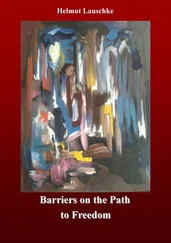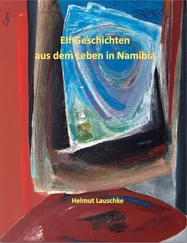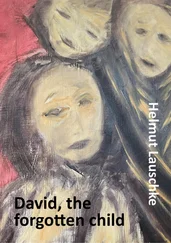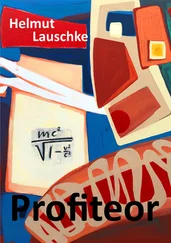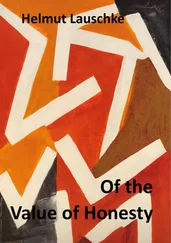The topic of the conversation came on Buber’s Psalms’ translation into German which Hermann Hesse praised as an authentic linguistic creation close to the original Hebrew text. I cited the fifth and sixth and the last psalm of ‘The Book of the Praises’ that I read for Kristofina in the morning. It was the last psalm I has sent her as she had passed away. I told Mr. T. the story of Kristofina how she was hit from lightning that she had burns in the face, on the left arm and the right lower leg with the open and charred shin bone. I told that I have seen her on the trolley in the outpatient department shortly after three o’clock and was shocked about the severity and that a human being could survive such a strike though her eyes already signaled that she couldn’t keep up her life. Despite the necessary medical measures were taken, a few hours later she passed away. Her soul has left the physical body. The termination of her short life was not forseeable, since a human being belongs to both the soul and the physical body and both together determine way and length of life.
Mr. T. stood up and said that his family was waiting. He thanked for the conversation and expressed the wish to resume the talk which he assessed as substantial when he climbed into his Toyota ‘Hiace’. Mr. T. closed the driver’s door and left the place. I closed the gate and went back to the small sitting room and left the door to the veranda open to get some air movement. It was hot and the flat had no air conditioning. I made a cup of instant coffee added with chicory and put the cup on the small table in the sitting room. I lit up a ‘Stuyvesant’ and leant back in the outseated armchair with Karl Jasper’s ‘The great philosophers’. I continued reading where the philosopher said: “The value of the reality of the four most influential human beings (Socrates, Buddha, Confucius, Jesus) is the experience of the basic human situation and the assurance of the human assignment which had been spoken out by the four important people. They had touched and answered the ultimate questions by their lives and work. Each of these personalities is to us as following human beings as to mankind at large like a permanent and restless questioning.” [R. Piper & Co. Publishers, München-Zürich 1981, 3 rdedition, Volume I page 227]
I reflected on my life and possible meanings and included the young girl Kristofina in this contemplation. Every second of thinking about life, new questions came up that I could not answer. I asked himself, if I had learnt something new to understand the basic things in life when I discovered that the answers became lesser and more doubtful the more I questioned the various aspects of life. The answers were more unsatisfying the older I got. It became difficult to understand the reason for the question-answer gaping. The fact was not compatible with the conception and meaning of life. I closed the book and put ‘The great philosphers’ back on the table. I worried about the inability in putting things together when I went for another cup of coffee and came back and lit up another cigarette. I sat back in the armchair and followed the smoke rings and trails when I remembered older people’s sayings not to look for an answer of everything what was going on in life.
Smoke trails moved under the asbestos mats in the ceiling and along the wall as I thought of Kristofina. I saw her burnt face and body with the charred shin bone and saw her eyes which told that she will lose her life what she gave up a few hours later to free herself from the pain of a disfigured body with one leg only and the contracted scars. I asked the astronomic question, though I had no knowledge of ‘far-visual’ science where Kristofina was ‘walking’ now after having left the planet and having crossed the ‘bridge’ to the universe three hours ago. I ‘saw’ her soul flying like a bird flapping powerfully the wings, while she passed one sun after the other deeper into the galaxy. I looked into ‘The Book of the Praises’ and sent her the best wishes for her ‘flight’.
Some cars drove through the standing water to and from the ‘International Guest House’ opposite to the flat. Broad tyres on the big wheels of the passing Casspirs splashed the mud up to the treetops and against the mosquito mesh of the veranda. Dark clouds drew up when I had the wish to visit Dr Witthuhn. I put on trousers and rolled the trouser legs up to the knees and left the flat closing the veranda door with the sandals in my hand. Mud and standing water went up to the ankles or higher when he stepped into a pothole. The rain started when I reached with mud spots on the trousers the house of Dr Witthuhn who carried a twelve-set of ‘Guinness’-dumpies from the car into the house. He trudged with shoes through ankle-high water in the front garden without rolled-up trouser legs. Gate and boot shutter were open. I closed the boot and followed the friend. “That was a night spectacle. It was not far that the water had flooded the sitting room”, Witthuhn said on the way from the car to the house, while I washed the mud from the feet and rolled down the trouser legs. I put the sandals behind the main door and entered the sitting room. There I greeted Dr Bernhard who was accommodated in the small sleeping room packed with cardboards and other things. It was the room where I have slept or lain sleeplessly a couple of weeks before.
“Take a seat I bring a beer”, Witthuhn said. I took a seat on one of the upholstered chairs next to the club table. Dr Bernhard had occupied the two-seater and leafed in a glossy magazine forward and backward. Witthuhn put three dumpies on the glass plate of the table. He went back to the kitchen and brought the glasses and put them on the table as well. He filled his glass and took a seat on the other upholstered chair and said cheers and emptied the half of the glass. “How was your duty?”, he asked with some beer froth on the upper lip. When he heard the story of Kristofina with the charred shin bone and the tachycardia with extrasystoles and that the girl passed away after a few hours, he said that he has not seen a human hit by a lightning. Dr Bernhard leafed in the magazine forward and backward and read passages on one and the other page. The fatal fate of the girl seemed not to touch him. He was busy with himself. I was wondering about the colleague’s indifferent attitude. It revealed a personality outside normal range. Dr Bernhard was close to fifty. He was not married and had no family. His character was reserved. He did not speak about his private affairs. It was in contrast to the openness of other colleagues who had exchanged their life experiences under the seal of confidentiality. When Dr Bernhard opened himself to a small gap, he spoke of his mother, but not of his father. His behaviour was of an introverted loner, though he could be a charming person as well. He was sporting, played tennis after working hours and was a dedicated mountain climber of the Swiss Alps.
The telephone rang. Dr Witthuhn went to his sleeping room and took the call. He came back and told that two patients were brought to hospital, who needed urgent attention. The overture of the ‘Magic Flute’ had ended. I emptied the bottle, wished the colleagues a restful afternoon and rolled up the trouser legs to the knees and left with sandals in my hand the friend’s house. I stalked through ankle-high water in the front garden. It was raining when walked barefoot on the muddy road to the hospital. The guards at the checkpoint were in a relaxed Sunday mood. They let the mud-walker pass without requesting the permit. I walked and crossed the square and washed the mud under the outside tap from the legs. The sandals were put on and the trouser legs were rolled down when I entered the waiting hall of the outpatient department. Two trolleys were standing with patients. A circa forty-year-old man lay on the first trolley with a broken right ankle. He had slipped off and had bent the foot.
Читать дальше
